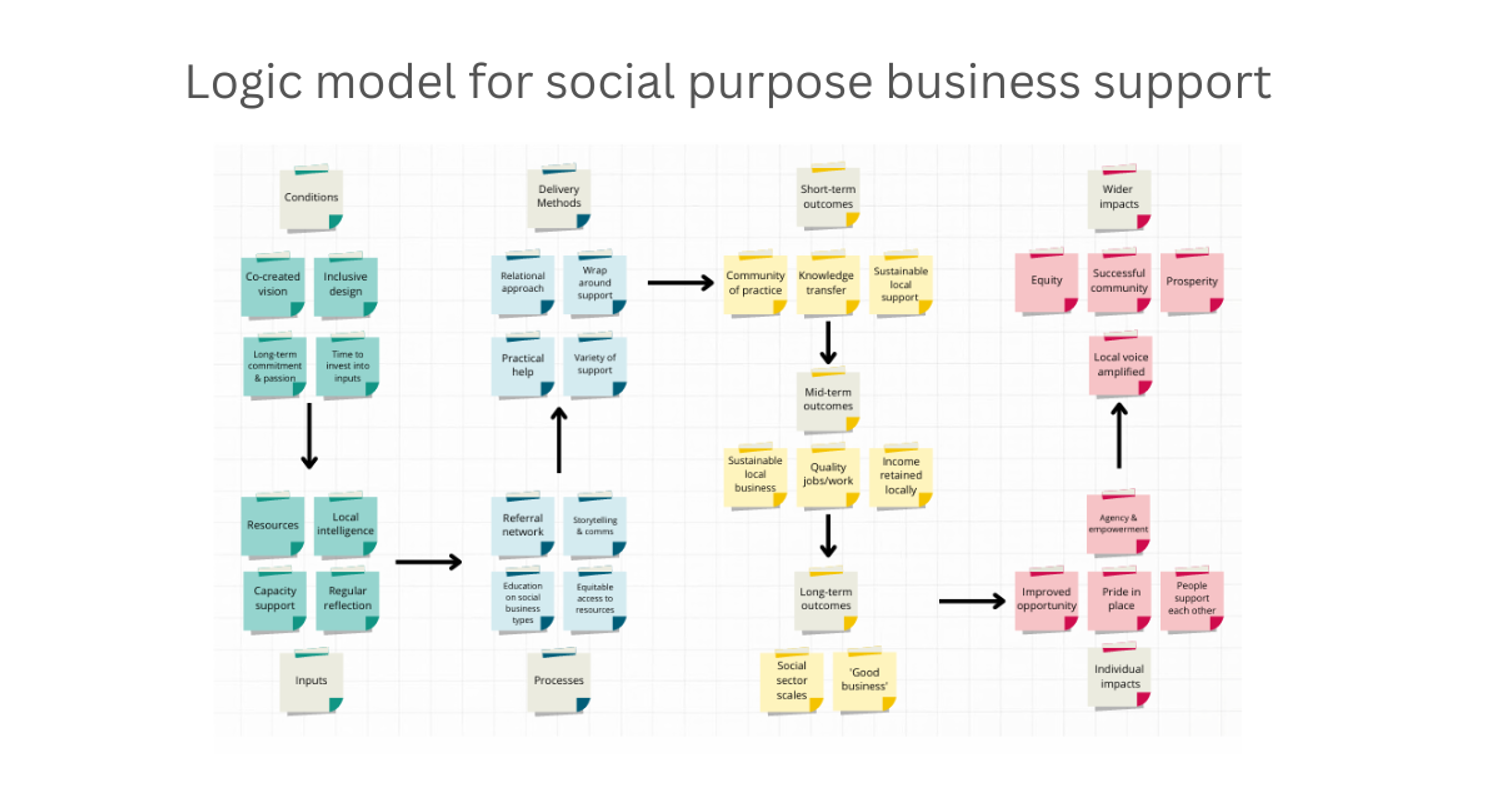Case Study - Driving effective local business support for social-purpose organisations

Sarah Thelwall

As we celebrate the 10th anniversary of Power to Change and their support for community businesses, we are revisiting one of their success stories in Bradford.
Participate Projects delivered the Empowering Places ‘Made in Manningham’ project in an inner-city Bradford community. Their approach built on earlier work within the district around enterprise coaching in disadvantaged communities to create a programme of support for locally grown ideas for social change.
Building on learning from ‘Made in Manningham’ and the other Empowering Places areas Participate, in partnership with Power to Change, CLES and Coops UK, produced the Innovation in Business research project. The project focused on identifying effective systems of support for enterprise in places that face multiple issues of disadvantage. One key output of this project was the logic model. This sets out the essential conditions and elements that drive effective local business support for social-purpose organisations.

In particular the team demonstrated (and the logic model articulates) the need for a relational business support ecosystem. This approach fostered sustainability and success in community led social purpose organisations far more consistently than the more traditional focus on business advice, information and training.
Many core elements of the Innovation in Business approach continue to be at the heart of the way Participate Projects operates as they continue to drive sustainability and impact by:
- Creation of a community of practice around social-purpose business support
- Emergence of knowledge transfer clusters at the local/community level
- Increased sustainability and connectivity of local support organisations
Longer term this results in:
- Scaling of the social business sector in both size and reach
- Emergence of a wider culture of “good business”—ethically grounded, socially beneficial enterprises.
One of the key inputs of the logic model of sector development was the role of local intelligence. This is where MyCake’s data approach fits in.
Working closely with MyCake for the last 5 years, Anthony Waddington, Chief Executive at Participate, talks of the huge benefits that their data expertise has brought to their work and practices:
“We have effectively added MyCake as a layer into the local intelligence piece in the logic model. This allows us to combine data with insight to create an approach to identify, prioritise and target support at one or more of place / theme / organisation.
“This massively strengthens the inputs into the logic model. We then combine this with the processes and delivery methods to create a data and insight driven approach to deliver effective support to organisations. The delivery methods include tools (our Diagnostic system, Service design tools, Impact tools and workshops) and methodologies (solution focused coaching, service design).”
Participate Projects sees that success has been borne out of an already clear understanding of the value of data in prioritising resources and focusing activity. With this foundation and mindset already in place, they were aware of the serious limitations that manual data analysis brought.
“We simply couldn’t have undertaken the scale of projects and initiatives that we have today. We now have a fuller picture of the landscape in terms of community provision and where there are gaps.”
One example of this would be Health Service funded work to support essential VCSE organisations within the health system. Participate and their partners have been able to use data to:
- Identify the organisations involved in supporting the health of the people of Bradford
- Identify those that may have resilience issues
- Direct local support accordingly
This delivers a cost-effective approach for the NHS to support their VCSE supply chain and tackles the risk of organisation failure to the delivery of good health outcomes.
For Anthony, this ability to provide evidence and base decisions on real data and insight, has freed them up to innovate and modernise the way they support their communities.
And they can do it with confidence. “We have the ability to speak the same language as commissioners and funders, making us able to demonstrate a clear understanding of what is really needed in the community.”
The long-term commitment from Power to Change first via Empowering Places and latterly through Innovation in Business provided stable support and development allowing the programme to translate and evolve into the data-driven, scalable initiative it has become today.
It is also worth noting that there are a series of benefits beyond these programmes. The ‘Made in Manningham’ work that was identified by Empowering Places has developed with support from The Esmee Fairbairn Foundation. Other programmes of support are being delivered by Participate Projects with both local and national infrastructure partners and funded by West Yorkshire Combined Authority, Local Authorities and the NHS and a wider West Yorkshire set of peers and partners including CABAD, Forum Central, Voluntary Action Leeds and Nova Wakefield. All are harnessing the data resources that MyCake offers to support their individual and shared activities across the VCSE sector in West Yorkshire.
You can find our first Bradford Case Study here: https://mycake.org/news/a-health-case-study-in-bradford-using-the-empowering-places-data-and-dashboards
And more information about our Place Based Dashboards here: